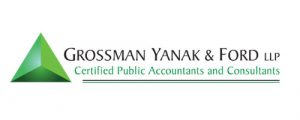
Ring in the Holidays with Gingerbread
November 11, 2022
A Pittsburgh Pilgrim in the Holy Land
December 9, 2022 By: Cody Peddicord, Senior Tax Accountant
By: Cody Peddicord, Senior Tax Accountant
Grossman Yanak & Ford LLP
E-mail: peddicord@gyf.com Telephone: 412-338-9300
Website: www.gyf.com
The Employee Retention Credit (ERC) was created by the Coronavirus Aid, Relief, and Economic Security (CARES) Act in March 2020. The ERC is a payroll tax credit available to eligible businesses based on a percentage of qualified wages and health insurance benefits paid to employees in qualifying quarters of tax years 2020 and 2021. It is intended to reward business owners that retained their workforces and avoided layoffs during the coronavirus pandemic.
Businesses can qualify for ERC in one of two ways. One way to qualify is the operations of the business had to be fully or partially suspended by a COVID-19 governmental order or via a gross receipts test comparing quarterly gross receipts from tax years 2020 and 2021 to corresponding quarters of 2019. In order to qualify under the gross receipts test in tax year 2020, a business has to show a 50% or greater decline in quarterly gross receipts compared to the gross receipts of the same quarter of tax year 2019. It is easier to qualify in tax year 2021 as you still have to compare quarterly gross receipts to those of 2019, but the decline in gross receipts only has to be 20% or greater.
If a business does qualify for ERC via one of the two methods, business owners can expect to receive a fully refundable tax credit of up to $5,000 per employee for all of tax year 2020 and up to $7,000 per employee per quarter for tax year 2021. To put that into perspective, one employee that was paid by a business owner throughout the pandemic could potentially be worth up to $26,000 back in the business owner’s pocket. The ERC, as mentioned above, is a fully refundable payroll tax credit, which means that the IRS will cut the business owner a check for the full refund amount. This money can be used however the business owner chooses and has a lot less “red tape” compared to other government programs like the Paycheck Protection Program (PPP) loans. The ERC refund received by business owners is considered taxable income and owners should discuss the tax implications of receiving this credit with a trusted tax professional.
The Employee Retention Credit can provide a substantial amount of “new found” money to business owners. If you are a business owner that paid employees during the COVID-19 pandemic, it is worth reaching out to a trusted tax professional to see if your business qualifies. There are still plenty of businesses out there that do qualify for ERC and business owners that are currently passing up the opportunity to get tens of thousands of dollars via a tax refund back in their pocket. Feel free to reach out to a tax professional at Grossman Yanak & Ford LLP to see if your business qualifies for ERC or with any other questions that you may have at 412-338-9300.




